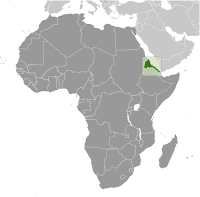 |
| Troubles for believers in southern Mexico have not ended. |
Dr. Dale W. Kietzman, founder of Latin American Indian Ministries told ASSIST News, “While we want to be positive about the year ahead, we have to report to you a real concern for tribal believers in southern Mexico. The troubles for believers there have not ended!”
Here are confirmed reports of events that have happened just in the past few months, all from the Mexican states of Chiapas and Oaxaca:
- A pastor was waylaid and killed as he travelled back to his village after a doctor’s appointment in Comitan, Chiapas.
- Three pastors were killed in Santa Maria El Tule, Oaxaca.
- Four families of believers were expelled from the village of Chilil, Chiapas.
- The church in Llanos, Chiapas, was destroyed last June, and believers put on notice. This month, six homes were destroyed and the families expelled from the community.
- In Mitziton, Chiapas, the church and many homes were destroyed, and 50 families were expelled from the community.
- In Nachug, Chiapas, 86 families were expelled.
- At the end of 2010, 498 Indian believers were living as street people, homeless in the city of San Cristobal, where they had sought protection.
You can read the full report here.
Please pray for our brothers and sisters in Chiapas and Oaxaca. Pray the Lord would make them strong to lovingly and boldly proclaim the gospel (Ephesians 6:18-20). Pray that their passion for Christ will be the light that draws their family members and fellow villagers to Jesus (Matthew 5:14-16). Pray also that increased persecution will result in increased boldness among believers (Acts 4:29-31).















